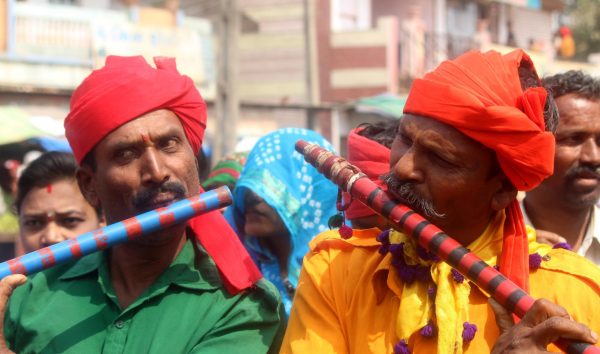Afrikan-American Genealogy Group Bridges Gaps Between Community and Students
This year, the Oberlin Afrikan-American Genealogy & History Group celebrates 20 years of community-based research and self-discovery. In the past two decades, OAAGHG has helped students and community members alike to find immense purpose through their work with genealogy.
College third-year Jordann Sadler has been dedicated to her research since 2018.
“I actually was able to trace my ancestry back to the 1700s,” Sadler said. “That whole experience was very spiritual to me. … That genuine love for research really had people noticing my work, and not just my work itself but my work ethic.”
During the Intro to Genealogy ExCo course taught by Sydney Murphy, OC ’20, and Eli Kirshner, OC ’20, Sadler was a standout among her peers. She was quickly elected the Student Liaison for OAAGHG, where she helped to bridge the gaps between students and the Oberlin community.
“We underestimate the power in being excited for something,” Sadler said.
That excitement has led each member toward finding the richness in the fabric of their individual histories. President of OAAGHG and Administrative Assistant in Residential Education, Annessa Wyman, focuses on how every personal history weaves together to construct a community.
“I believe that community goes beyond just Oberlin,” Wyman said. “For me, community continues. It can expand. When I say community, I don’t just mean things that are central to just Oberlin, Ohio. My community will broaden.”
As the OAAGHG community has expanded over the past twenty years, many students have embarked on journeys of self-discovery, often finding themselves guided to a deeper sense of who they are or what they want to study.
“It is really one of the tools to investigate and dig deeper for myself,” Murphy said. “Part of it is also tied to my connection to Africana Studies and investment in preserving Black histories.”
Kirshner plans to pursue genealogy professionally, and looks forward to both the historical and spiritual aspects of that work.
“Genealogy can be a tool to reveal how the past lives within us live in the present and to help us understand the fabric that our ancestors stitched together to make us who we are,” Kirshner said.
Currently, most of OAAGHG’s members are older but Wyman encourages people to start researching their heritage before it becomes more difficult to reach out to our Elders.
“With genealogy you don’t really see a lot of young people getting involved,” Wyman said. “Often we become interested in this at a stage where we have lost most of our core relatives who could really answer these questions for us. I wish I had listened to Grandma more when they were telling all those stories I used to think I didn’t want to hear.”
Sadler hopes to inspire more students to join the organization and communal experience. Part of Sadler’s work with OAAGHG is creating weekly research and conversational sessions held every Saturday via Zoom, from 2-4 p.m. EST. Those interested in beginning their journey with genealogy can log onto the Zoom or reach out to oaaghg@gmail.com for more information.










